
-
 Keys into Melbourne third round with Sinner, Djokovic primed
Keys into Melbourne third round with Sinner, Djokovic primed
-
Bangladesh launches campaigns for first post-Hasina polls

-
 Stocks track Wall St rally as Trump cools tariff threats in Davos
Stocks track Wall St rally as Trump cools tariff threats in Davos
-
South Korea's economy grew just 1% in 2025, lowest in five years

-
 Snowboard champ Hirano suffers fractures ahead of Olympics
Snowboard champ Hirano suffers fractures ahead of Olympics
-
'They poisoned us': grappling with deadly impact of nuclear testing

-
 Keys blows hot and cold before making Australian Open third round
Keys blows hot and cold before making Australian Open third round
-
Philippine journalist found guilty of terror financing

-
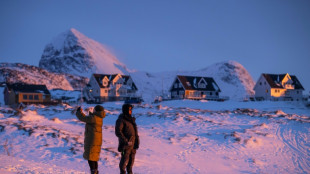 Greenlanders doubtful over Trump resolution
Greenlanders doubtful over Trump resolution
-
Real Madrid top football rich list as Liverpool surge

-
 'One Battle After Another,' 'Sinners' tipped to top Oscar noms
'One Battle After Another,' 'Sinners' tipped to top Oscar noms
-
Higher heating costs add to US affordability crunch

-
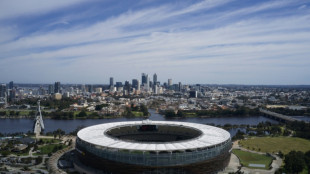 Eight stadiums to host 2027 Rugby World Cup matches in Australia
Eight stadiums to host 2027 Rugby World Cup matches in Australia
-
Plastics everywhere, and the myth that made it possible

-
 Interim Venezuela leader to visit US
Interim Venezuela leader to visit US
-
Australia holds day of mourning for Bondi Beach shooting victims
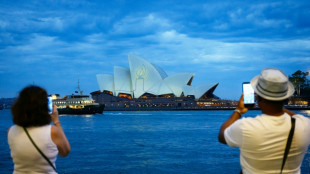
-
 Liverpool cruise as Bayern reach Champions League last 16
Liverpool cruise as Bayern reach Champions League last 16
-
Fermin Lopez brace leads Barca to win at Slavia Prague

-
 Newcastle pounce on PSV errors to boost Champions League last-16 bid
Newcastle pounce on PSV errors to boost Champions League last-16 bid
-
Fermin Lopez brace hands Barca win at Slavia Prague

-
 Kane double fires Bayern into Champions League last 16
Kane double fires Bayern into Champions League last 16
-
Newcastle pounce on PSV errors to close in on Champions League last 16

-
 In Davos speech, Trump repeatedly refers to Greenland as 'Iceland'
In Davos speech, Trump repeatedly refers to Greenland as 'Iceland'
-
Liverpool see off Marseille to close on Champions League last 16

-
 Caicedo strikes late as Chelsea end Pafos resistance
Caicedo strikes late as Chelsea end Pafos resistance
-
US Republicans begin push to hold Clintons in contempt over Epstein

-
 Trump says agreed 'framework' for US deal over Greenland
Trump says agreed 'framework' for US deal over Greenland
-
Algeria's Zidane and Belghali banned over Nigeria AFCON scuffle

-
 Iran says 3,117 killed during protests, activists fear 'far higher' toll
Iran says 3,117 killed during protests, activists fear 'far higher' toll
-
Atletico frustrated in Champions League draw at Galatasaray

-
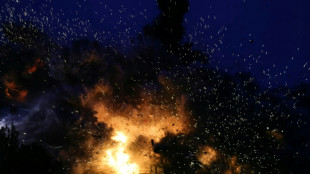 Israel says struck Syria-Lebanon border crossings used by Hezbollah
Israel says struck Syria-Lebanon border crossings used by Hezbollah
-
Snapchat settles to avoid social media addiction trial

-
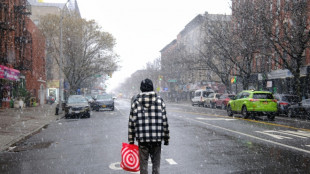 'Extreme cold': Winter storm forecast to slam huge expanse of US
'Extreme cold': Winter storm forecast to slam huge expanse of US
-
Jonathan Anderson reimagines aristocrats in second Dior Homme collection

-
 Former England rugby captain George to retire in 2027
Former England rugby captain George to retire in 2027
-
Israel launches wave of fresh strikes on Lebanon
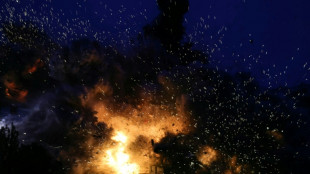
-
 Ubisoft unveils details of big restructuring bet
Ubisoft unveils details of big restructuring bet
-
Abhishek fireworks help India beat New Zealand in T20 opener

-
 Huge lines, laughs and gasps as Trump lectures Davos elite
Huge lines, laughs and gasps as Trump lectures Davos elite
-
Trump rules out 'force' against Greenland but demands talks

-
 Stocks steadier as Trump rules out force to take Greenland
Stocks steadier as Trump rules out force to take Greenland
-
World's oldest cave art discovered in Indonesia
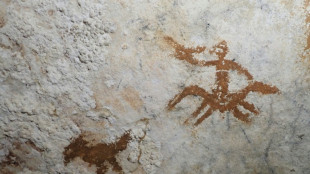
-
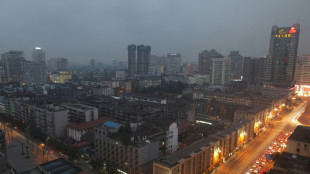 US hip-hop label Def Jam launches China division in Chengdu
US hip-hop label Def Jam launches China division in Chengdu
-
Dispersed Winter Olympics sites 'have added complexity': Coventry
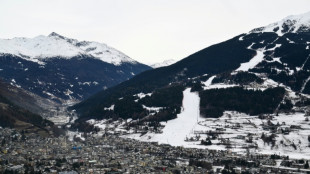
-
 Man City players to refund fans after Bodo/Glimt debacle
Man City players to refund fans after Bodo/Glimt debacle
-
France's Lactalis recalls baby formula over toxin

-
 Pakistan rescuers scour blaze site for dozens missing
Pakistan rescuers scour blaze site for dozens missing
-
Keenan return to Irish squad boosts Farrell ahead of 6 Nations

-
 US Treasury chief accuses Fed chair of 'politicising' central bank
US Treasury chief accuses Fed chair of 'politicising' central bank
-
Trump rules out force against Greenland but demands 'immediate' talks


In Brazil, stargazers escape cities in search of 'astro-tourism'
Awestruck by the oranges and blues of the Jewel Box star cluster, part of the Southern Cross constellation, Pedro Froes manages to get out a few words: "It's incredible."
Froes is viewing the stars from a telescope in Desengano State Park, a rural patch of Brazil largely spared from light pollution, located some 260 kilometers (160 miles) north of Rio de Janeiro.
Desengano is Latin America's first "International Dark Sky Park," as designated by the global light pollution tracker DarkSky. And Froes is one of the park's growing number of "astro-tourists," drawn there by its isolation from cities and the light they spew into the night sky.
"From here you can see 3,000 stars a year with the naked eye, without the help of an instrument," says astronomer Daniel Mello, from the Valongo Observatory at the Federal University of Rio de Janeiro.
"In cities like Rio or Sao Paulo, at most, you can see 200 a year."
In the front garden of the park's headquarters, located in the small town of Santa Maria Madalena, Mello conducts a public observation session in front of about 20 people, pointing with a laser to the Southern Cross, Scorpio and Centaurus constellations.
The evening is part of a project created by Mello and a group of specialists in tourism, ecology and photography.
The nearest big city is 120 kilometers away, protecting the park -- replete with vegetation, forest and mountains -- from artificial light.
That means the Milky Way is visible to the naked eye even on moonlit nights. Two telescopes provide views of more distant stars.
"I always liked to admire the sky, but I rarely had the opportunity to see it like here," says Froes, a 22-year-old biologist from Niteroi, a city near Rio.
- Annual star festival -
Some 80 percent of people on Earth sleep under night skies polluted by artificial light, the consequence of modernization and urbanization.
But beyond clouding out the stars, light pollution also has negative environmental effects -- leading to restless humans and disoriented migratory birds, and causing reproductive issues for other species.
In Latin America, the only other area recognized by DarkSky is in Chile's Elqui Valley, classified as a "sanctuary."
Unlike in Chile, Europe or the United States, astro-tourism is still in its infancy in Brazil.
But more and more stargazers have been trekking to Santa Maria Madalena, "especially in the last six months," says Nelson Saraiva. He runs one of the few hotels in the town of 10,000, where most people are farmers.
Saraiva, a retired teacher, is convinced astro-tourism can become a huge economic boon for the community. Beyond Mello's observation sessions, there are also monthly gatherings that mix astronomy and gastronomy.
The government and local entrepreneurs have banded together to organize a star festival to take advantage of growing tourist interest. The first festival was organized last September, with plans in place this fall for what's shaping up to be an annual tradition.
- Ecological equilibrium -
To obtain certification from DarkSky, Desengano park also had to commit to promoting environmental education, as well as using low-impact lighting.
Those sorts of moves are good for the sky, but also have down-to-Earth implications felt closer to home.
"We have an enormous diversity of birds, mammals, and reptiles which are here only because the place is preserved," says park research manager and biologist Carlota Enrici.
"Reducing light pollution keeps the ecosystem in balance."
Mello, the astronomer, hopes other places in Brazil can follow Desengano's model, which would not only expand tourism but also "rescue people's contact with the starry sky and with nature."
R.Adler--BTB




